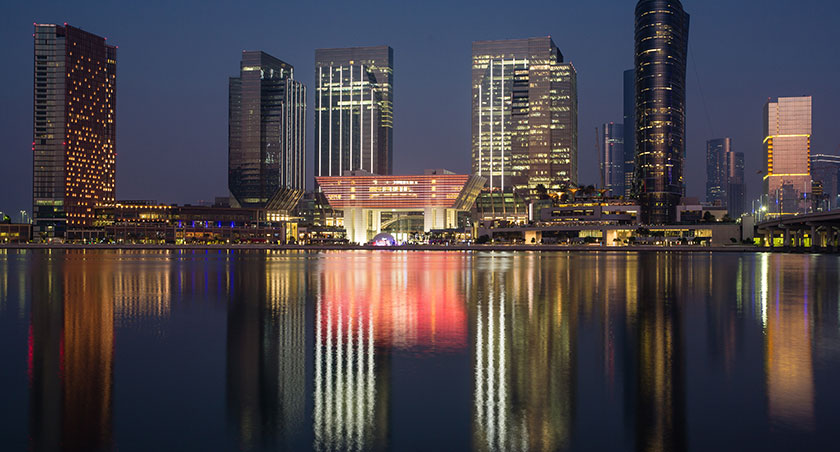
Abstract
Abu Dhabi transformed oil surpluses into generational wealth through a deliberate sovereign wealth architecture: ADIA as a global allocator, Mubadala as a strategic builder, and ADQ as a domestic operator. Each fund carries a distinct mandate yet aligns under one national vision, proving that structure—not just capital size—drives resilience and influence. Indonesia’s Danantara has similar potential but must avoid becoming a one-size-fits-all vehicle. To succeed, it should evolve into specialized capital arms—global, strategic, and domestic—anchored by strong governance, professional leadership, and long-term national mandates. Abu Dhabi’s model shows that capital is not passive; it moves, shapes, and secures the future. For Indonesia, the choice is philosophical: remain trapped in budget bureaucracy or embrace sovereign capital strategy. Danantara can become the nation’s capital architect, but only if structure precedes scale, narrative precedes politics, and integrity precedes ambition.
Abu Dhabi: The Capital Architect of Nation
Abu Dhabi is not just a resource-rich emirate—it is the economic engine of the United Arab Emirates, contributing close to 60 percent of national GDP. While oil and gas revenues provided the fiscal foundation, it is the sovereign wealth strategy that turned temporary surpluses into generational wealth. Abu Dhabi did not settle for a single fund with a catch-all function. Instead, it designed an architecture:
- ADIA for global diversification,
- Mubadala for strategic sector development, and
- ADQ for domestic transformation.
Each fund has a distinct mandate, behavior, and objective, yet all operate under a unified national vision. The power of this approach lies in its structure. The strength of Abu Dhabi’s system is not just the amount of capital it manages, but how that capital is segmented.
ADIA behaves as a global allocator, prioritizing capital preservation and long-term returns across asset classes and geographies. Mubadala acts as a builder—targeting industries of the future, from semiconductors to healthcare, and establishing national champions in the process. ADQ plays the role of operator, focused on transforming state-owned assets into productive, globally competitive enterprises.
This is not capital that waits—it moves, shapes, and defines the trajectory of sectors and economies.
Indonesia Should Take Notes
While Danantara is still in its early stages, it carries the potential to become a sovereign capital powerhouse. But potential alone is not enough. To deliver impact, Danantara must adopt a structure that separates mandates and prevents mission creep.
A single fund trying to act as allocator, builder, and operator will struggle to deliver clarity or results. Instead, Indonesia can consider evolving Danantara into a family of capital vehicles: one dedicated to global deployment, one to strategic innovation, and one to domestic productivity transformation.
Each with its own leadership, investment thesis, and performance framework.
The Importance of What’s Important
Governance, talent, and narrative are equally critical. Abu Dhabi’s funds are not ceremonial institutions. They are led by professionals with deep financial, operational, and strategic expertise. Decision-making is structured, insulated from short-term political cycles, and anchored in long-term national interest. The mandate is not only to invest, but to build resilience, generate influence, and secure the future.
For Indonesia, this means identifying and cultivating a generation of capital leaders who understand not just finance, but also how capital intersects with power, innovation, and development. It also means controlling the narrative—ensuring the public understands the function of these funds not as tools of government expenditure, but as instruments of national strategy.
Structure Before Scale
More importantly, this moment presents a once-in-a-generation opportunity for Indonesia. Our country is rich in resources, people, and strategic geography. What we lack is not potential, but structure.
Imagine if our state-owned enterprises were valued as assets to be optimized rather than liabilities to be subsidized. Imagine if capital allocation became the primary economic engine, not just budget absorption.
This is not a technical shift—it is a philosophical one. It requires us to stop thinking like a bureaucracy and start thinking like a capital architect.
The Way Forward
I don’t want to sound overly optimistic about it. I’m just offering the blueprint I believe Danantara should follow. We must do the real work. Let’s ditch outdated economic frameworks that have led us nowhere. Let’s move past personal interests, and prioritize the nation’s interest.
As a good friend of mine once said: Indonesia never runs out of resources—it runs out of people driven by honesty and integrity. That truth hits hard. I will continue delivering what I know to be true, and I hope someday Indonesia will truly taste what it means to become a developed nation.
I believe in Danantara. But belief alone is not enough—it must be paired with real work. I’ve done my part. I created Capital Architect as my contribution to Indonesia—and to Danantara. A doctrine. A framework. A legacy in the making.
To close this, let’s remember: Abu Dhabi’s success took time. So will Indonesia’s. But when we walk the right path, even if it takes longer, success always arrives.
